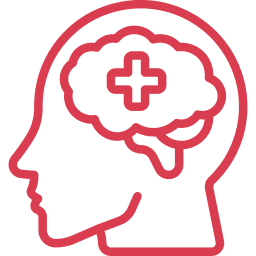ADHD
Attention Deficit Hyperactivity Disorder service located in Doylestown and King Of Prussia, PA

Regain Control Over your Focus
When clients are diagnosed with ADHD, there is often a great relief. They understand their daily life patterns and how they experience things differently than those around them. Unfortunately, failed attempts in academics, careers, self-care, relationships, and hobbies can lead to lowered self-esteem. These things can be challenging without the proper medication that allows for some consistency in daily life. P.S. Psychiatry understands that your ADHD symptoms aren't you being “lazy” or “absent-minded,” and it's certainly not that you want to be scattered. With the right medication, you can take back your focus.


Signs & Symptoms of ADHD
Everyone feels a little scattered sometimes, where it's hard to get things done. But sometimes, this can be more persistent than you'd like, causing difficulties at work or home. If you have difficulty staying focused on a single task at a time or like you need to constantly be doing multiple things, it might be time to talk to your P.S. Psychiatry professional.

Inattention: You might fail to give close attention to details, have difficulty sustaining attention or have difficulty organizing tasks.

Hyperactivity: You often find yourself fidgeting, leaving your seat (when you’re expected to stay seated), or often seen as being “on to go.”

Impulsivity: You tend to act without thinking. This can look like blurting things out in a conversation or buying something spontaneously.

Lacking Persistence: You find it hard to stay on task. Instead, you might jump from task to task before each is completed.

Early Onset: Symptoms of ADHD (even without a diagnosis) were present in childhood, specifically before 12 years old.

Treatment Options
We understand that ADHD can feel very limiting and difficult to overcome. You’ve probably already tried things to help yourself too. Below are a few things that can help reduce or even eliminate some of your symptoms.

Medication: A prescription from your P.S. Psychiatry provider can help with your ADHD symptoms.

Evaluation: A formal Neuropsychological Evaluation (also called an assessment) is critical in obtaining a formal diagnosis and an appropriate treatment plan.

Therapy: Talking with a Therapist or an Executive Functioning Coach is a great place to learn different strategies to navigate your ADHD symptoms

Nutrition: The term 'we are what we eat' can make all the difference in terms of your adhd symptoms.

We're Here to Help
When you’re ready to talk, we’re ready to listen. Tap the button below to get in touch with P.S. Psychiatry and schedule your appointment.